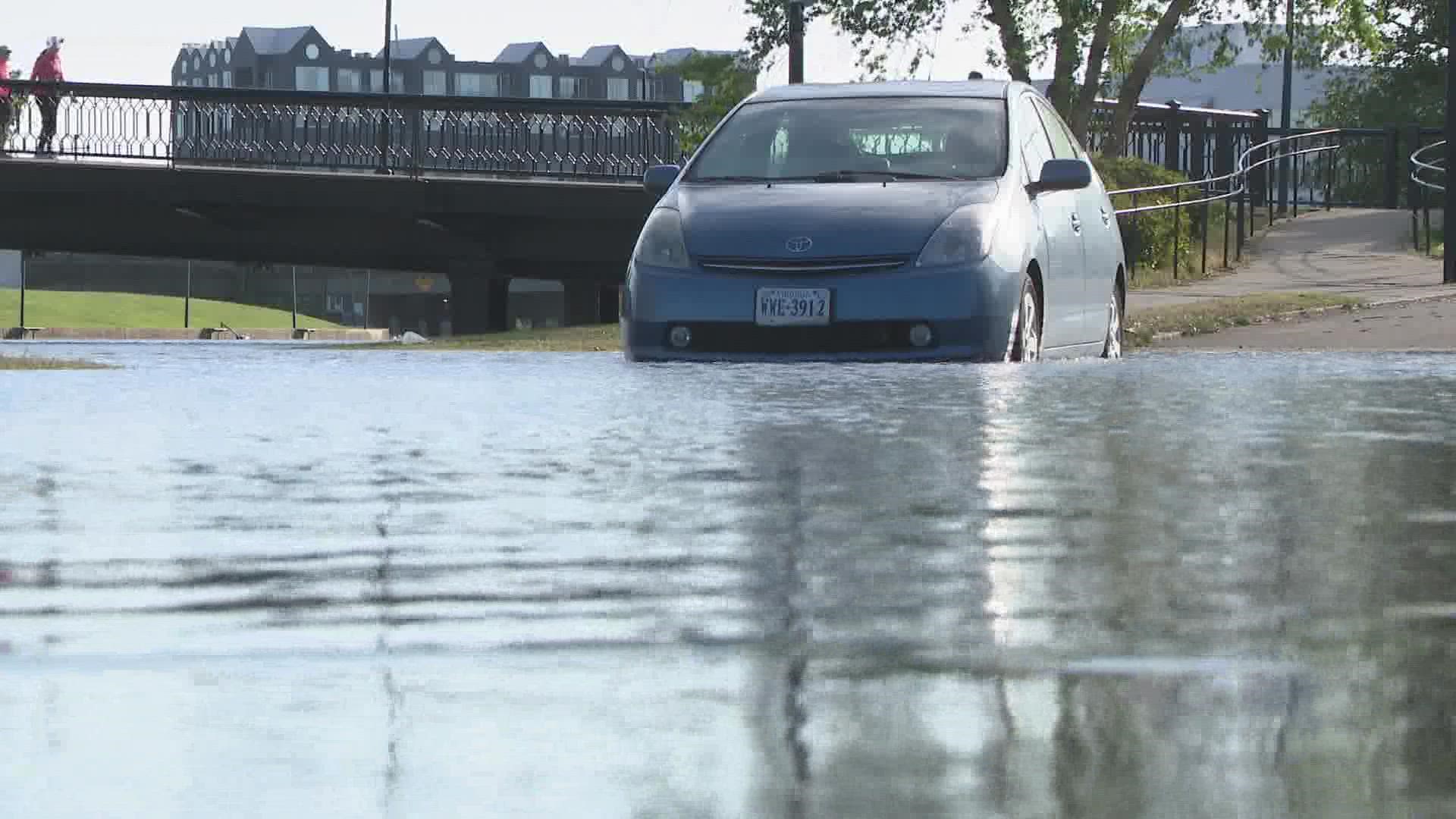NORFOLK, Va. — Virginia could see a high price tag as a result of flooding if change doesn't happen soon.
Researchers with Old Dominion University say Coastal Virginia could be in deep waters by the end of the century if there’s no change to combat sea level rise and recurrent flooding.
A new report released Thursday shows sea level rise will cost the state about $79 billion at the current rate we’re going.
“Which accounts for almost 14% of all economic activity in Virginia,” said Bob McNab, the director of ODU's Dragas Center for Economic Analysis and Policy and the Strome College of Business.
McNab said the report was funded by the Commonwealth Center for Recurrent Flooding Resiliency (CCFR).
The report looked at Coastal Virginia, which is divided into eight Planning District Commissions (PDCs) by the Virginia General Assembly. This area made up about 60% of the state's 2019 population.
McNab said Hampton Roads is feeling the weight of that economic loss.
“Hampton Roads accounts for about eight out of every 10 dollars of future losses for sea level rise,” he said.
But that’s only part of it.
With parts of Hampton Roads sinking, McNab said places like ODU’s campus could be underwater by the end of the century.
He said that as the risk of flooding increases, so will your insurance premium. You could even lose your coverage altogether.
“We’re already seeing this in coastal areas of the United States and some homeowners in Florida,” McNab said.
With that comes the potential de-population of Hampton Roads.
“If people can’t find jobs here Hampton Roads over the long-term, if other areas have higher wages, they’re going to move," McNab said.
When you start losing highly skilled workers, industry moves and then it’s a destructive cycle.”
McNab said economists believe a carbon tax is the most efficient way to help mitigate the damage.
“Because then people can make their own decisions of what’s valuable to them,” he said.
Coastal Virginians play a role in this too. They can help by encouraging leaders to change policies to combat sea level rise.
McNab said this report contains 'lower-bound' estimates.
According to the study, storm probabilities and damages may increase if climate change ramps up.
That means we could see an even higher economic impact than projected.

